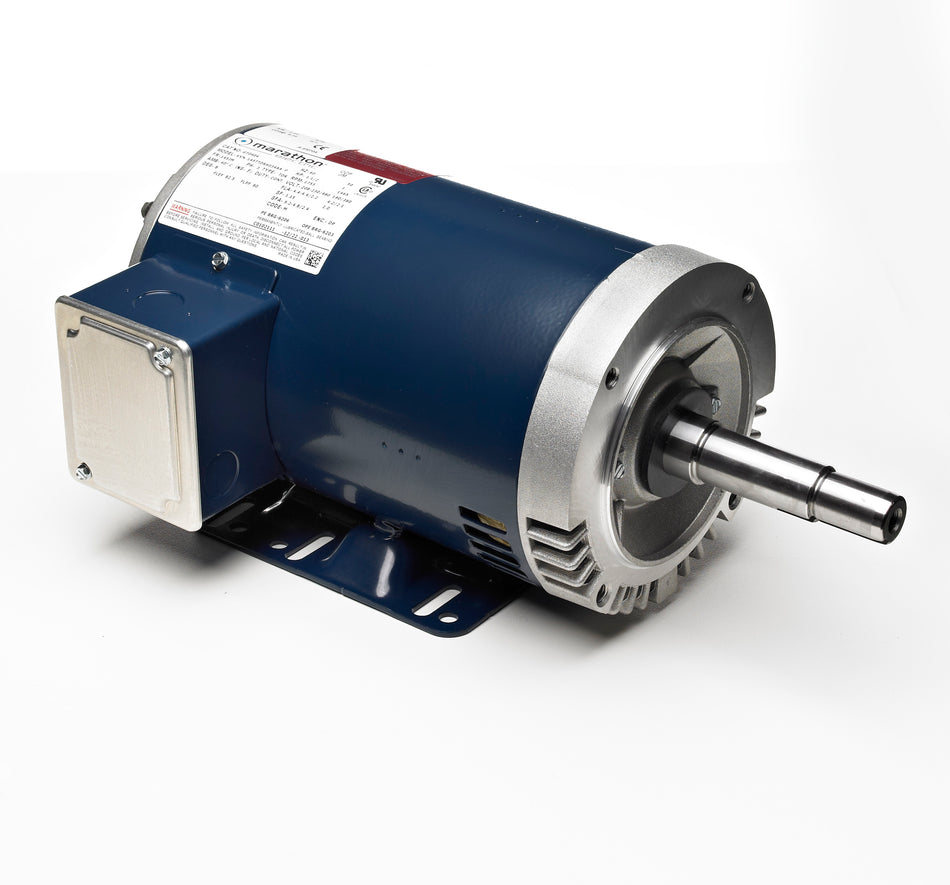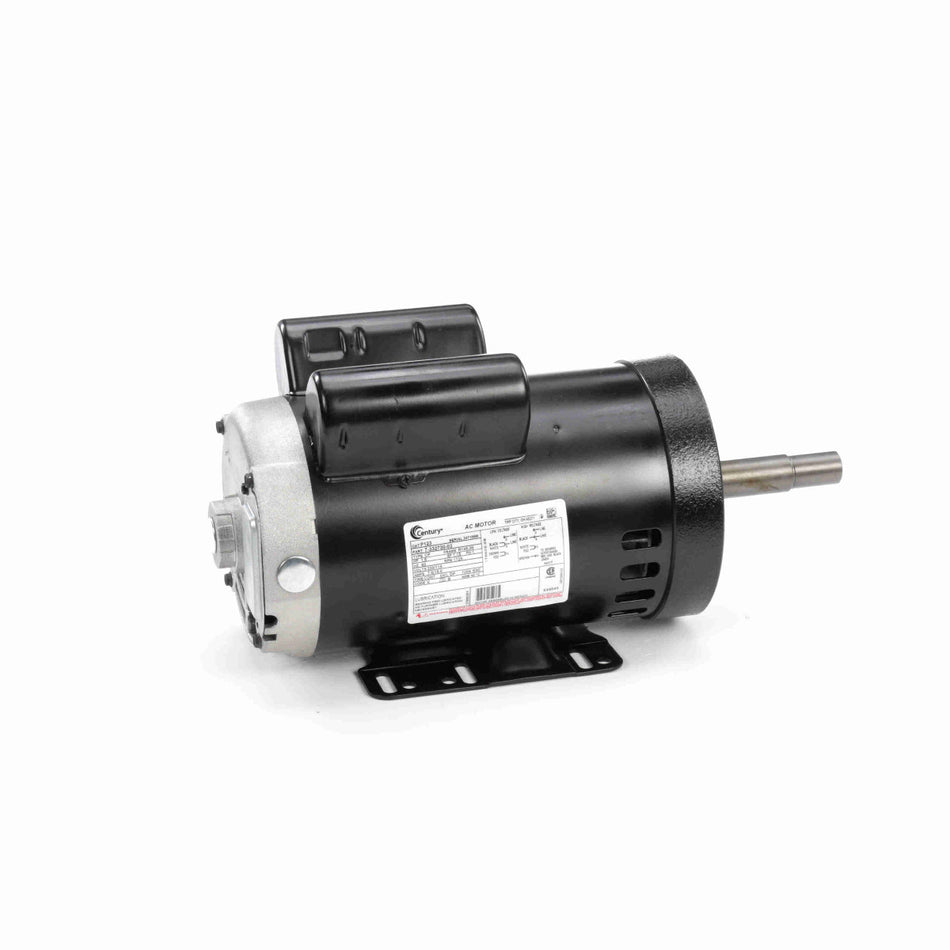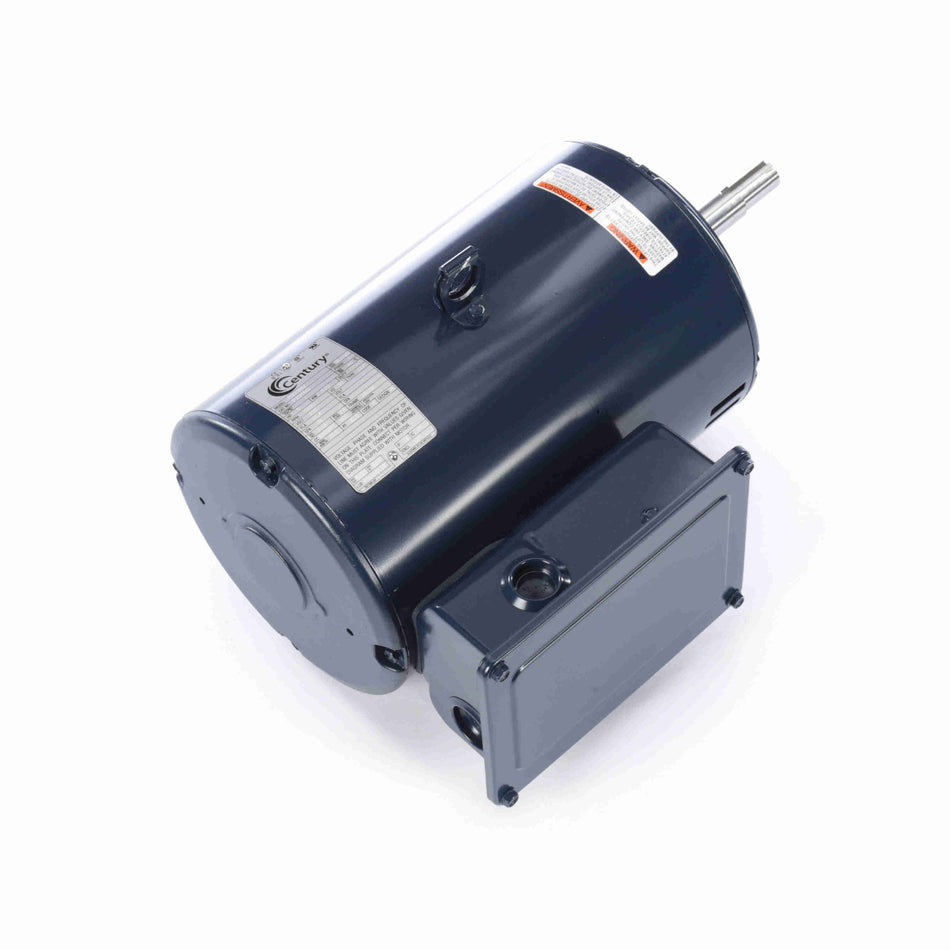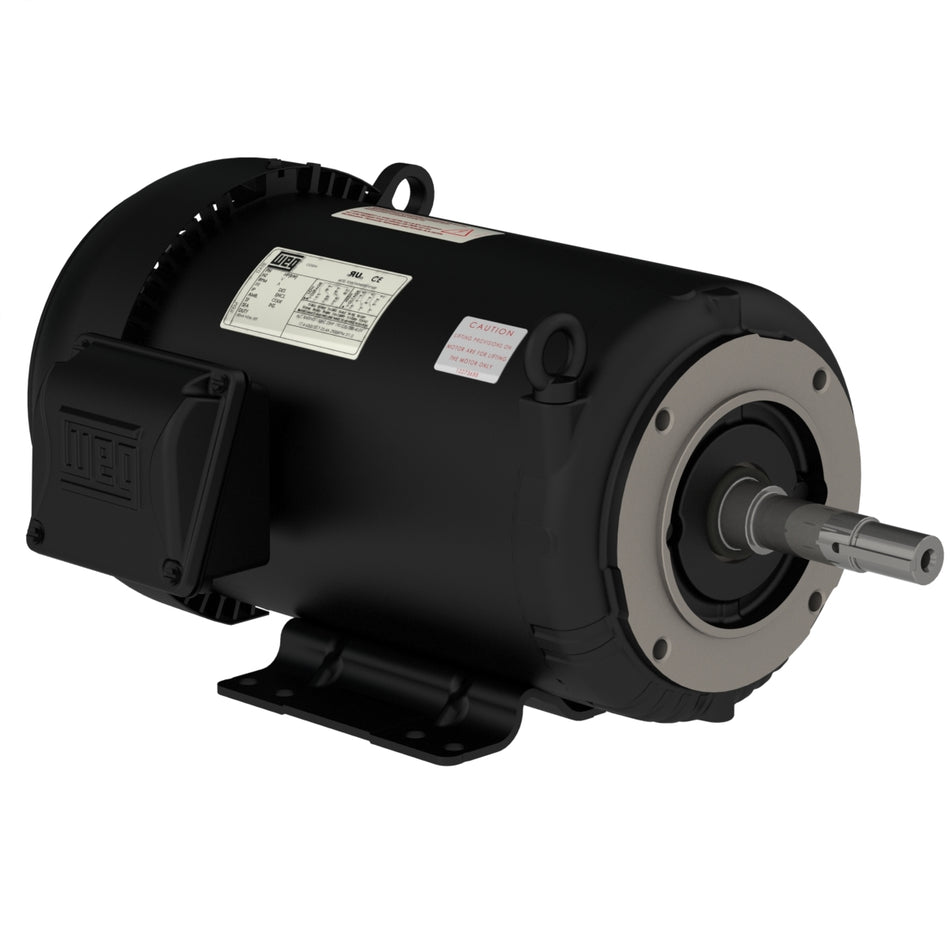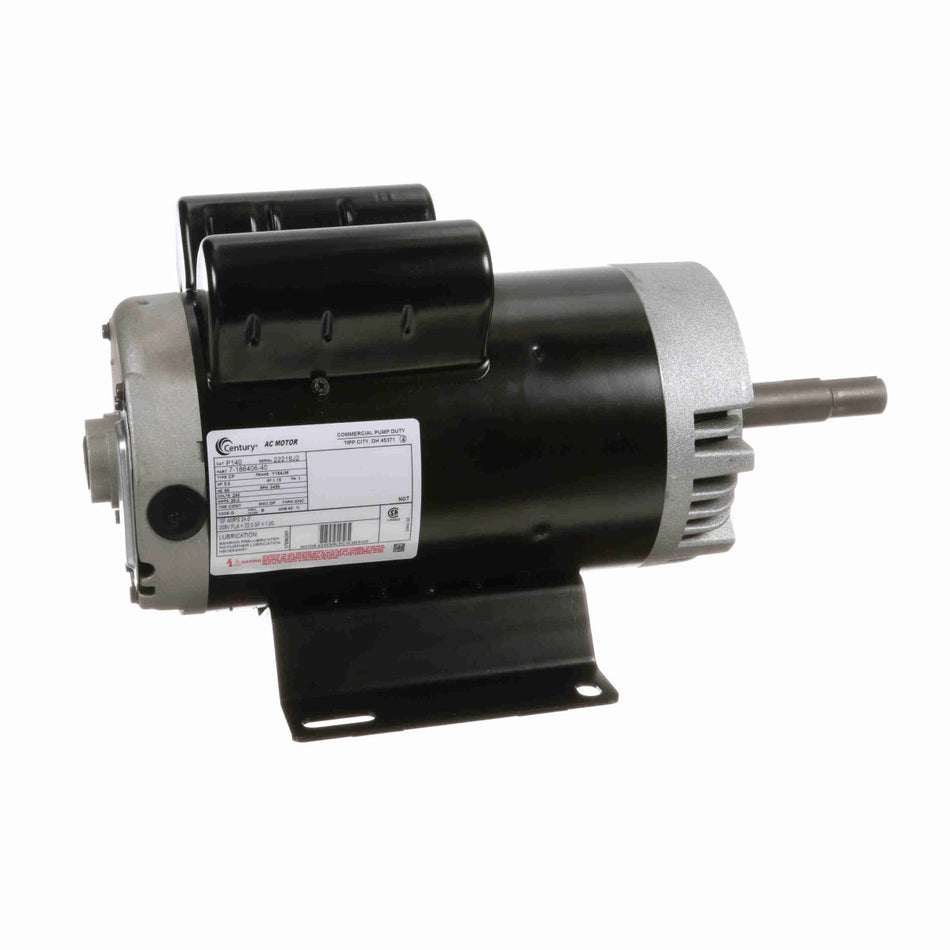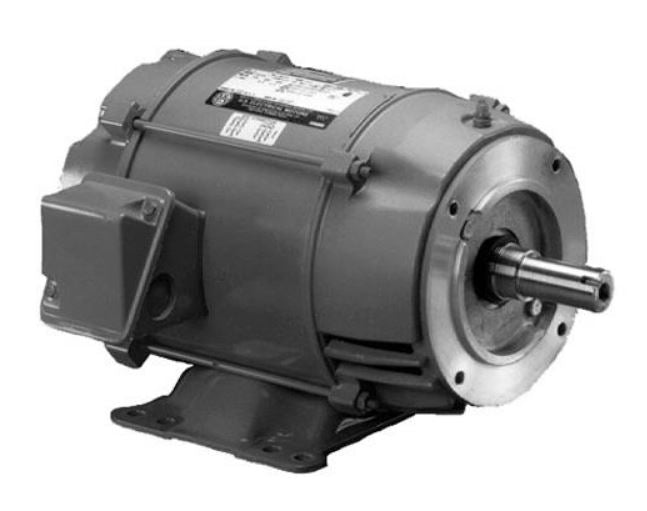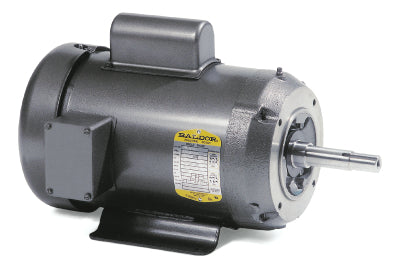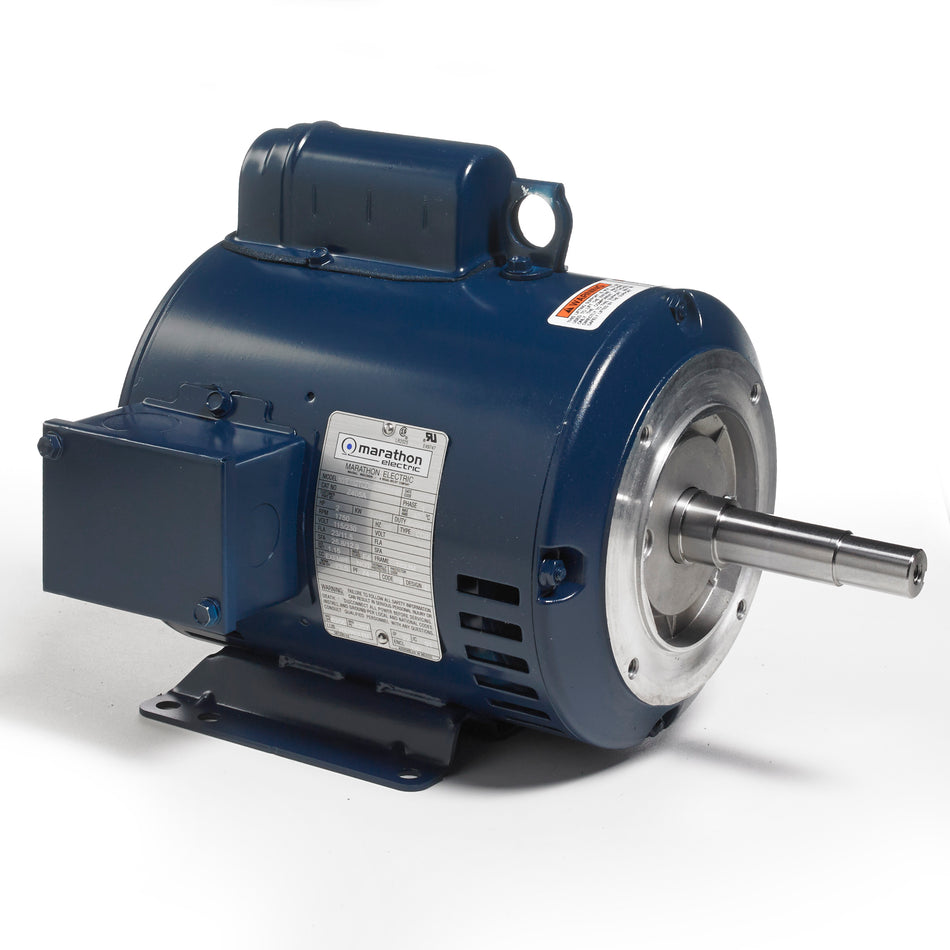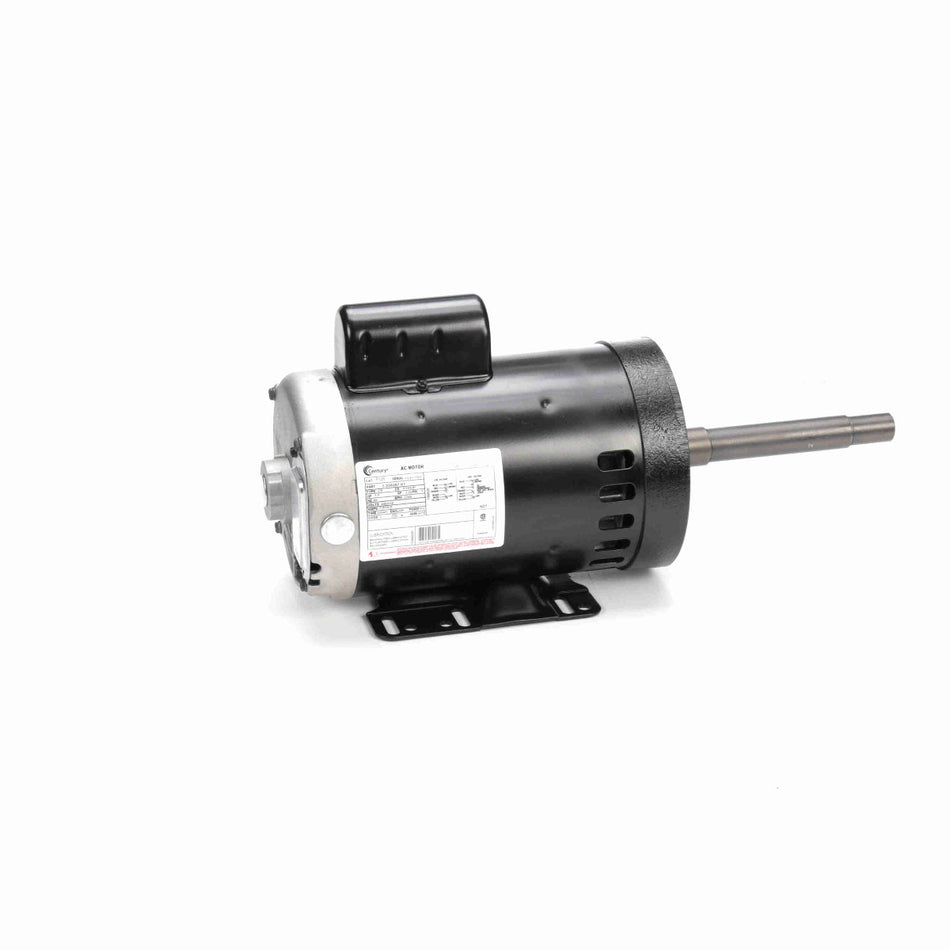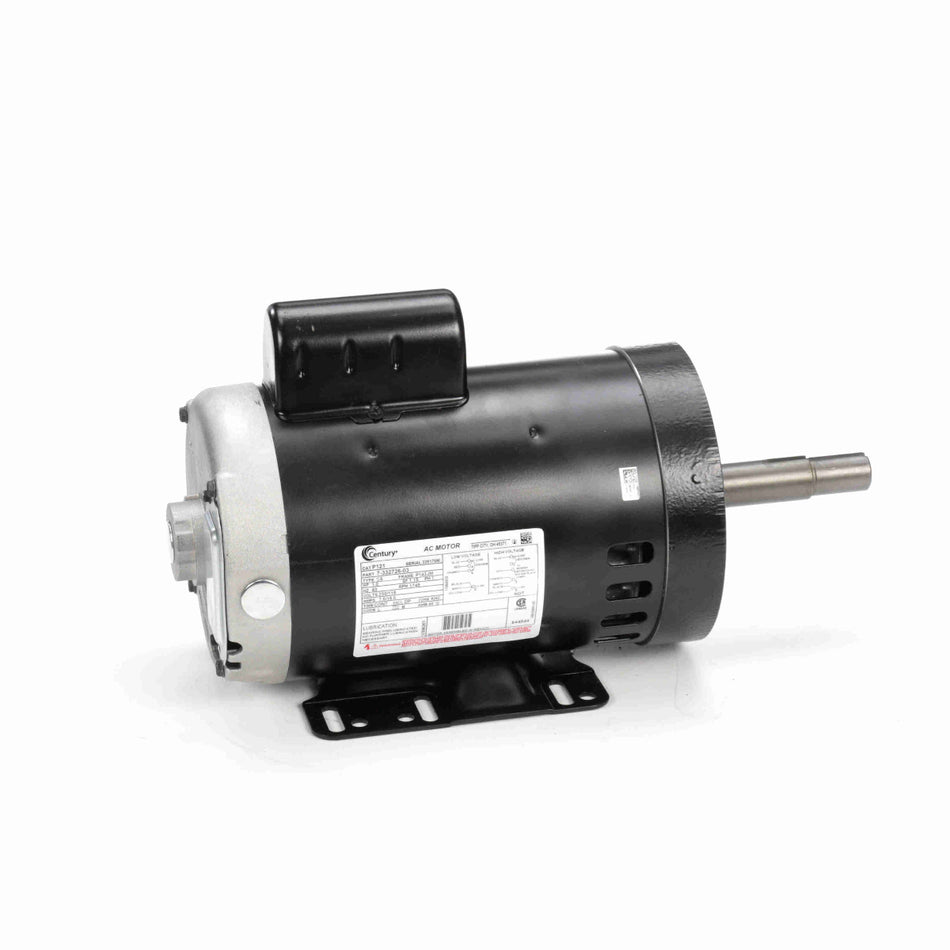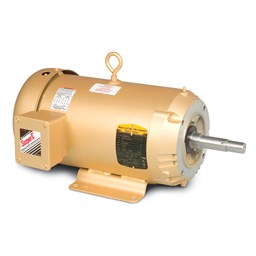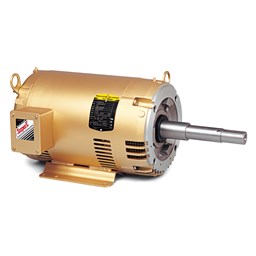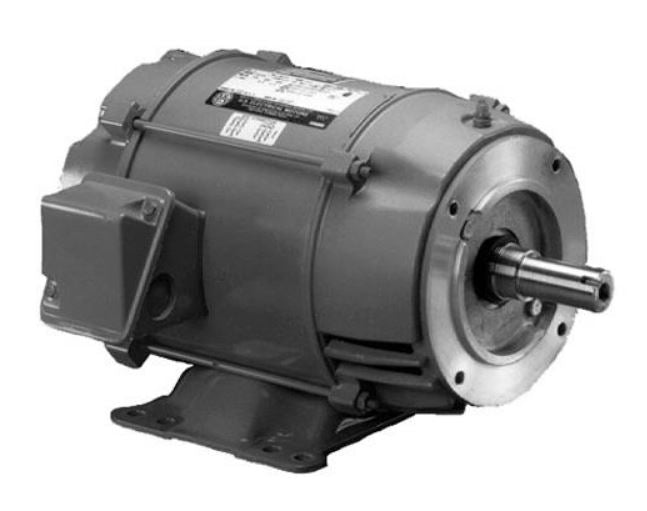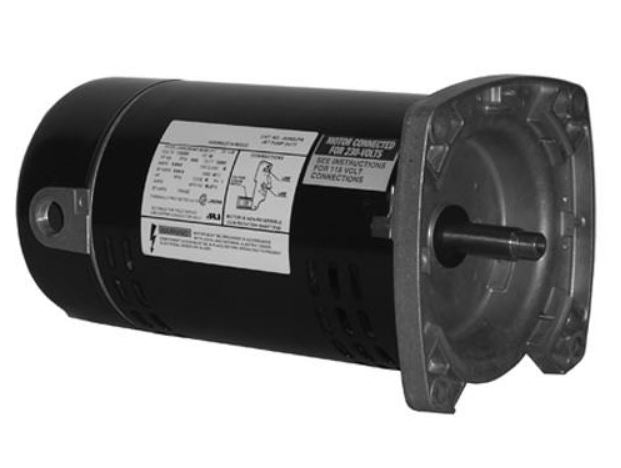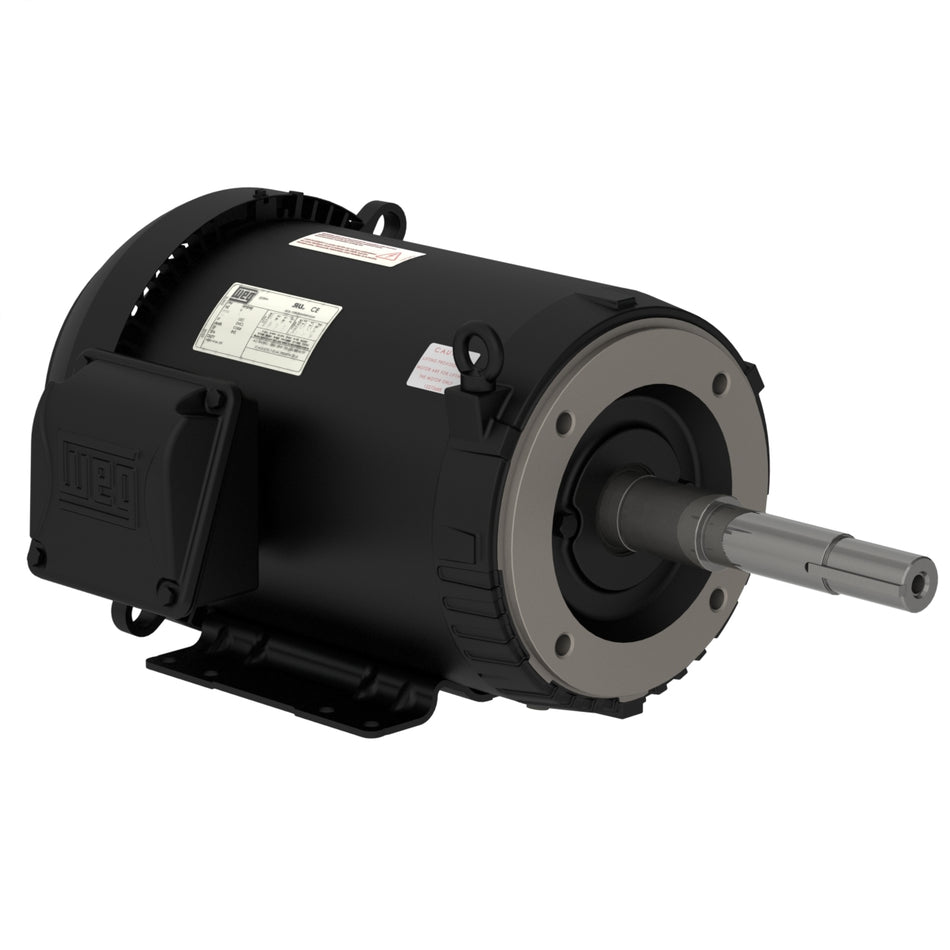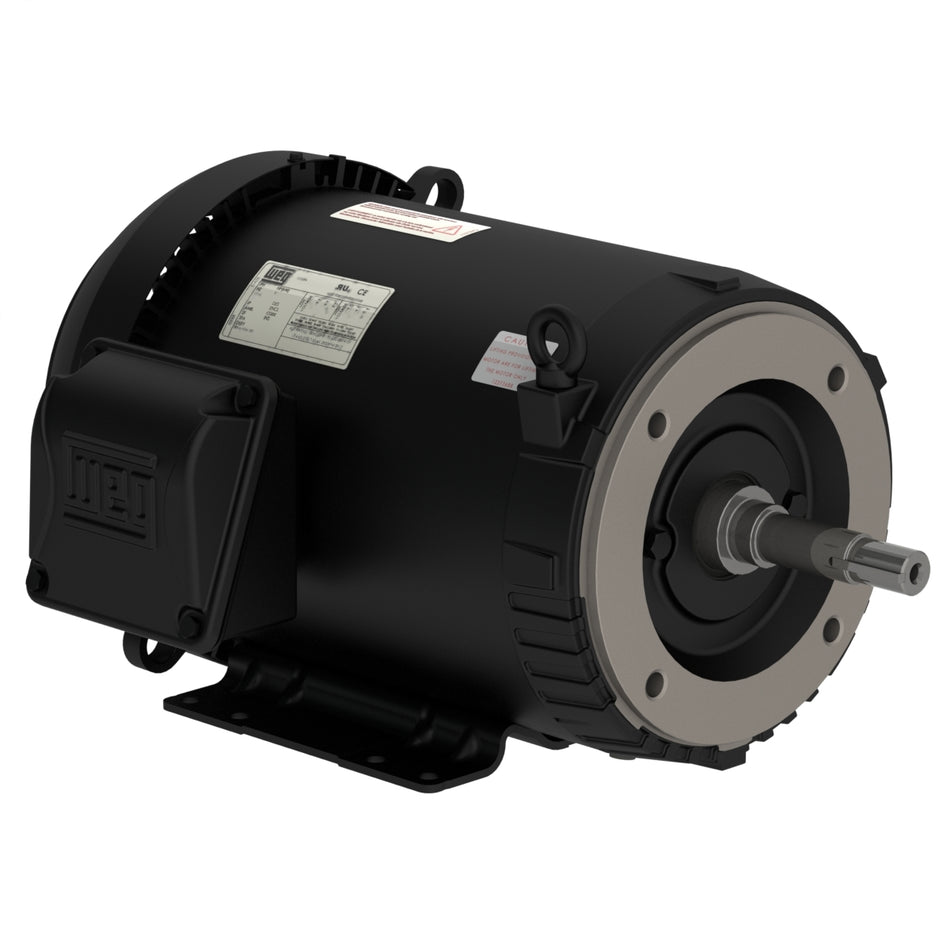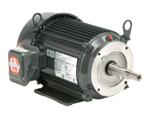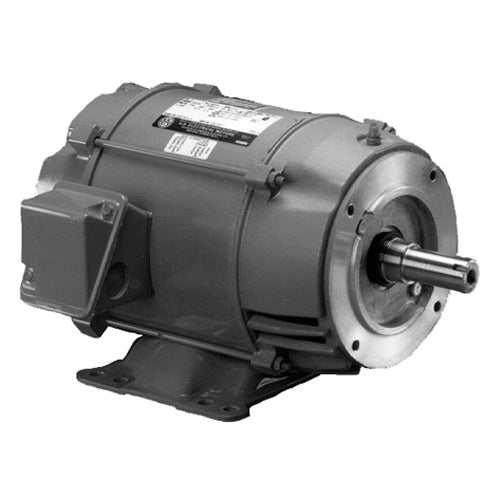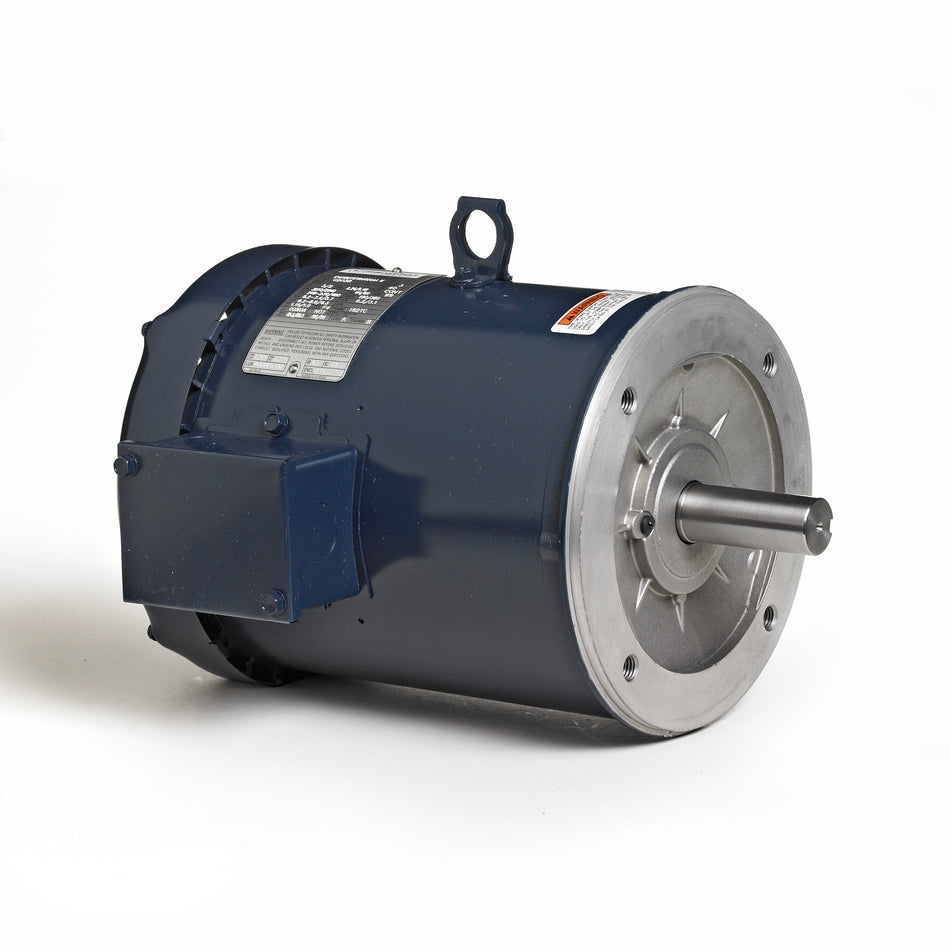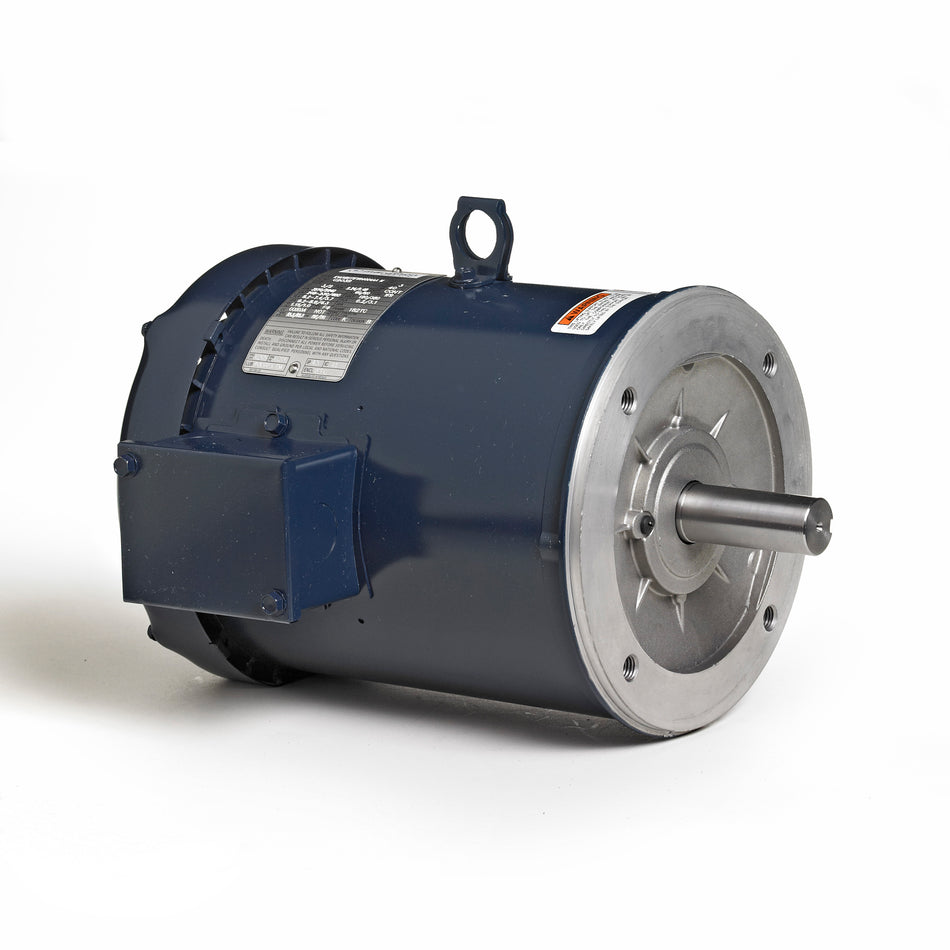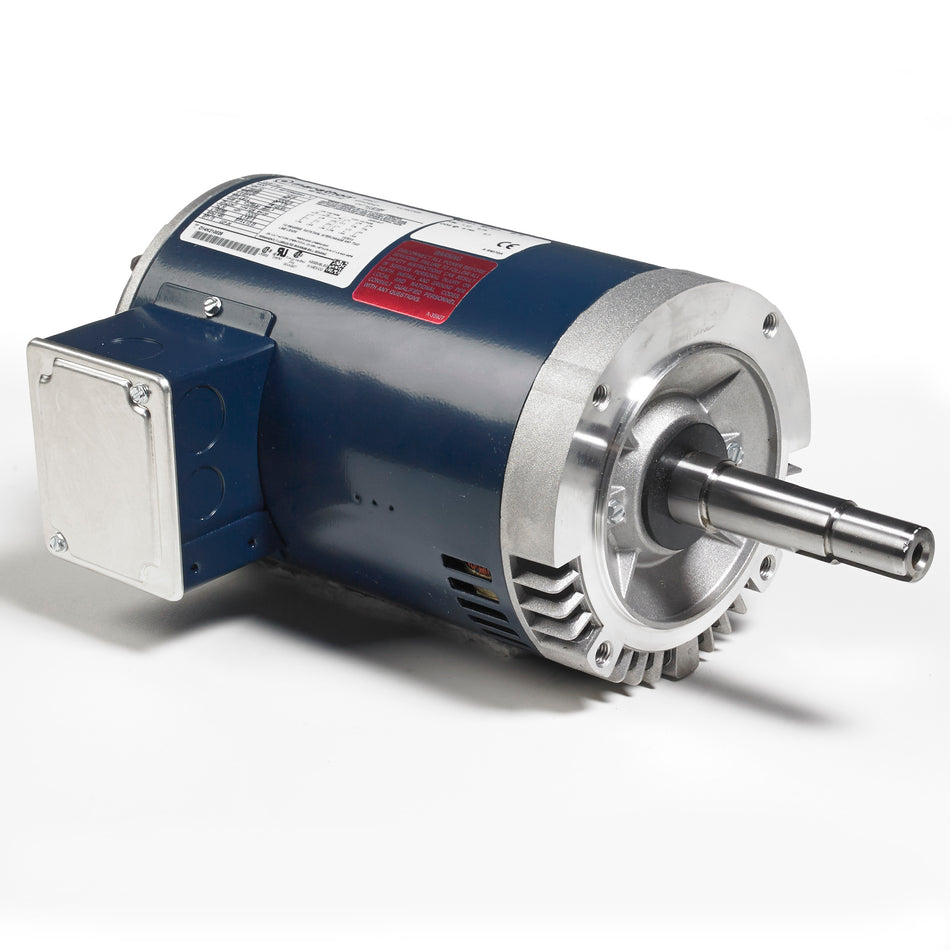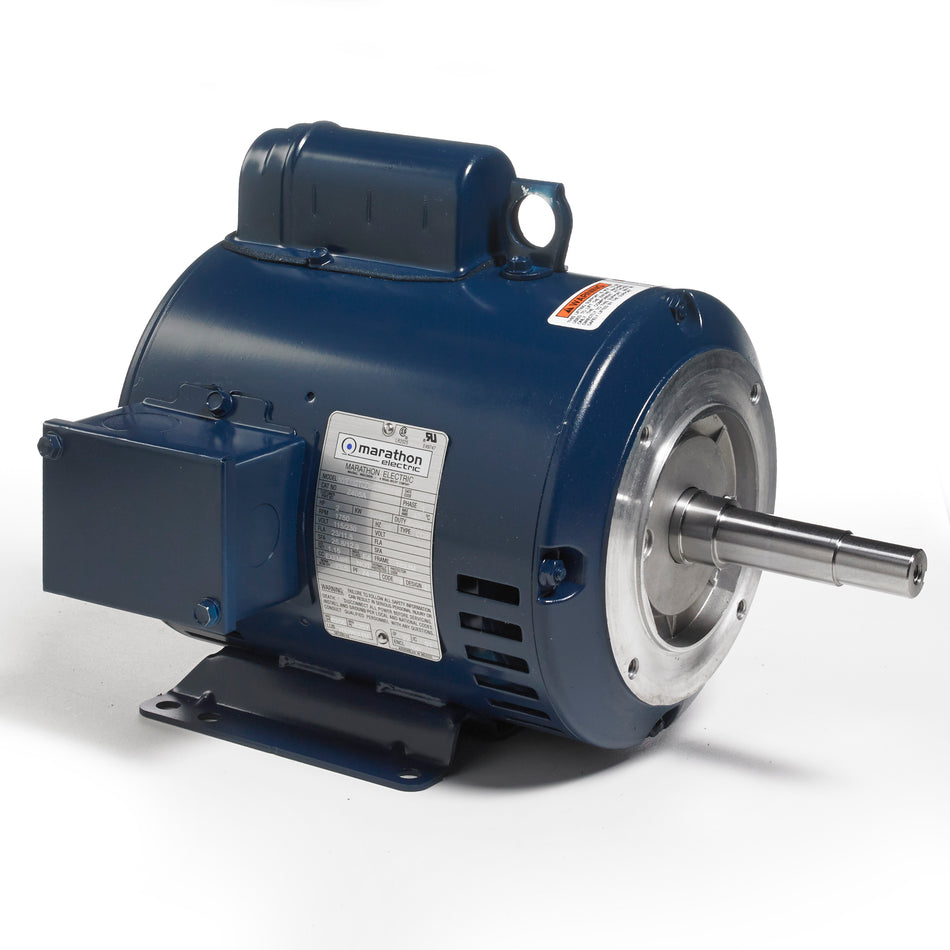1024 Products
-
Sale
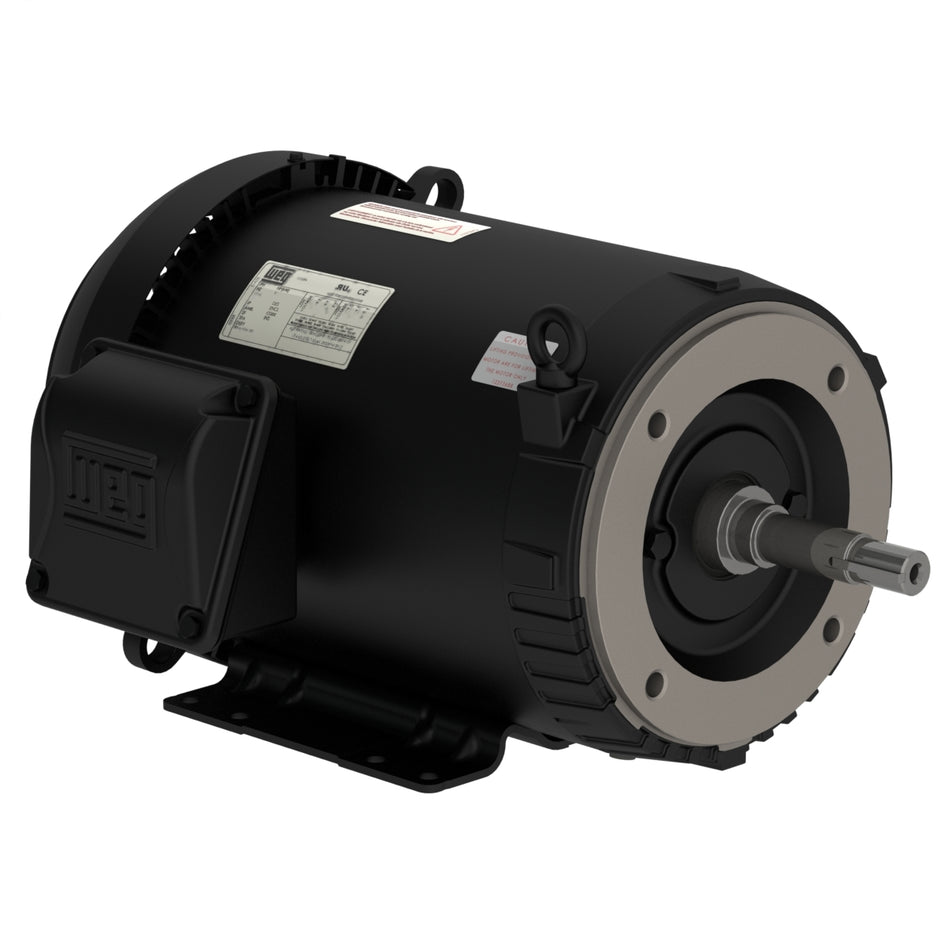
01018ET3E215JM-SG Weg Motor 10HP 1800RPM 213/5JM TEFC 230/460//190-220/380-415Volt 3 Phase 13221571
In stockRegular price $1,517.25Regular price$2,023.00Sale price $1,517.25 -
Sale
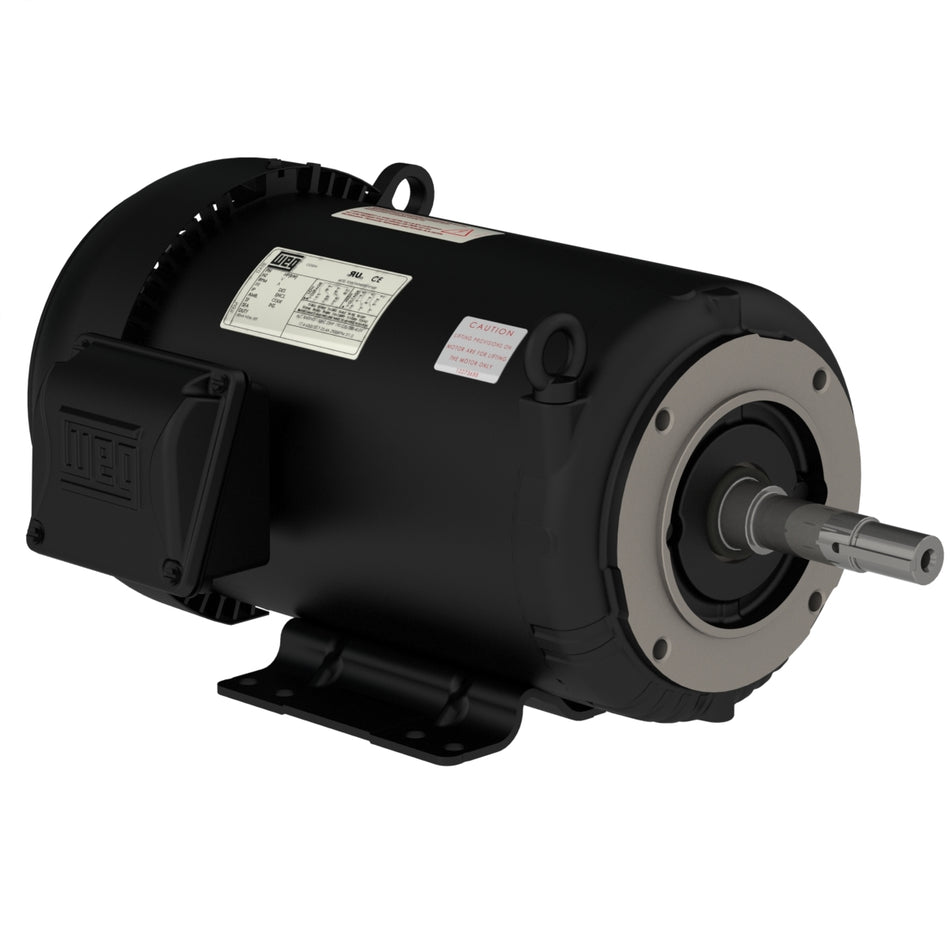
00718ET3E213JP-S Weg Motor 7.5HP 1800RPM 213/5JP TEFC 230/460//190-220/380-415Volt 3 Phase 13507646
In stockRegular price $1,157.25Regular price$1,543.00Sale price $1,157.25
Collection: Centrifugal Pumps
Close-coupled pump motors take up less space than frame-mounted pump motors and are often used in centrifugal pump applications.
Close coupled pump motors are designed to meet the mounting requirements of JM and JP residential and industrial pump applications, where the pump impeller is mounted directly on the motor shaft. The motor flange and shaft are designed to support the pump unit with a rigid mount. There is no seperate coupling because the motor face mounts directly, so coupling alignment is not needed. Common uses are centrifugal pumps, including in-line pumps for chemical transfer, utility, pressure boosting systems, cooling water treatment and more.
These close coupled pump motors feature NEMA frames and oversized, locked, shaft-end ball bearings to limit shaft movement and help provide a long service life. Close coupled pumps are also available in many configurations, including horizontal, vertical, self-priming, and multi-stage.
What does the JM and JP mean?
JM Pumps use mechanical seals for sealing the rotating part of the shaft against the stationary part of the pump housing, thus preventing leaking fluid or air from being drawn into the unit under vacuum conditions. A mechanical seal can easily leak or become damaged if it is not seated properly or if the pump or machine runs dry; and they are more expensive than JP units. However, a mechanical seal should be used when there are safety or environmental issues associated with leakage, or if the pumped fluid presents a safety, health, or environmental hazard.
JP Pumps use packing material, most often made of sort of synthetic, polyimide, metallic, graphite, or carbon, depending on the application's requirements. Typically, there is some leakage with compression packing - at times substantial, which may create safety concerns or additional costs for maintenance to routinely clean the area. Another downside is that packing has a shorter lifespan than mechanical seals.

